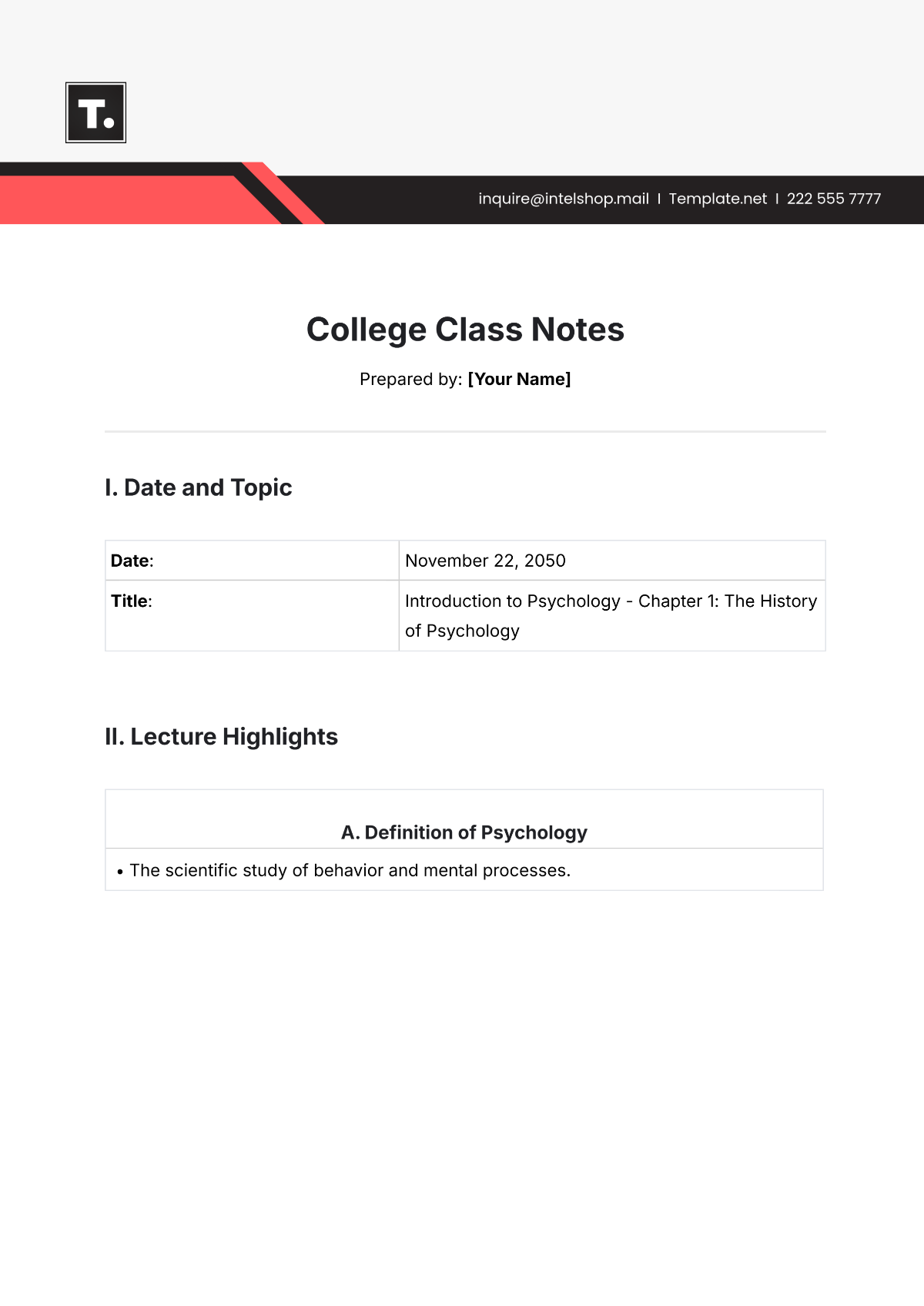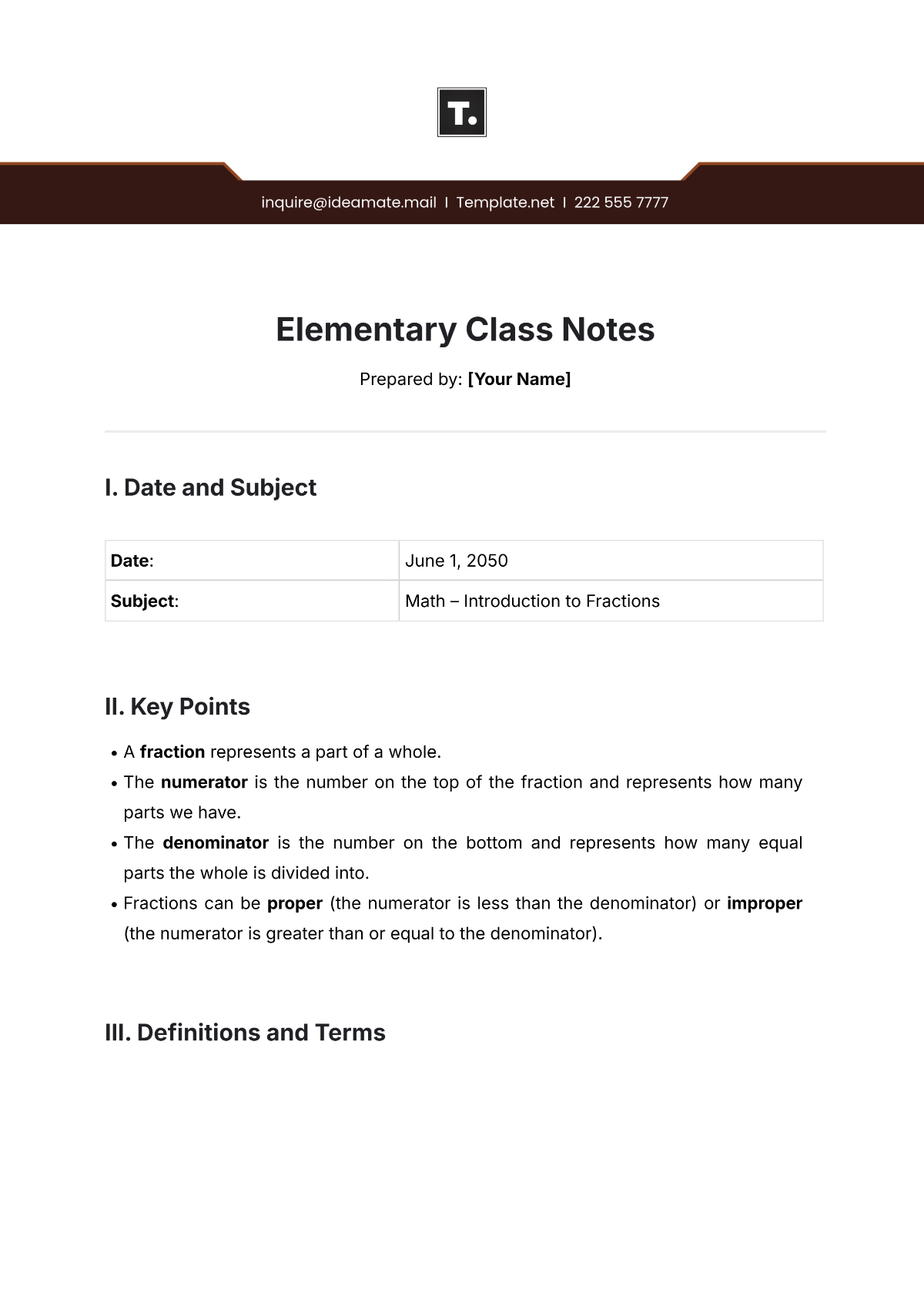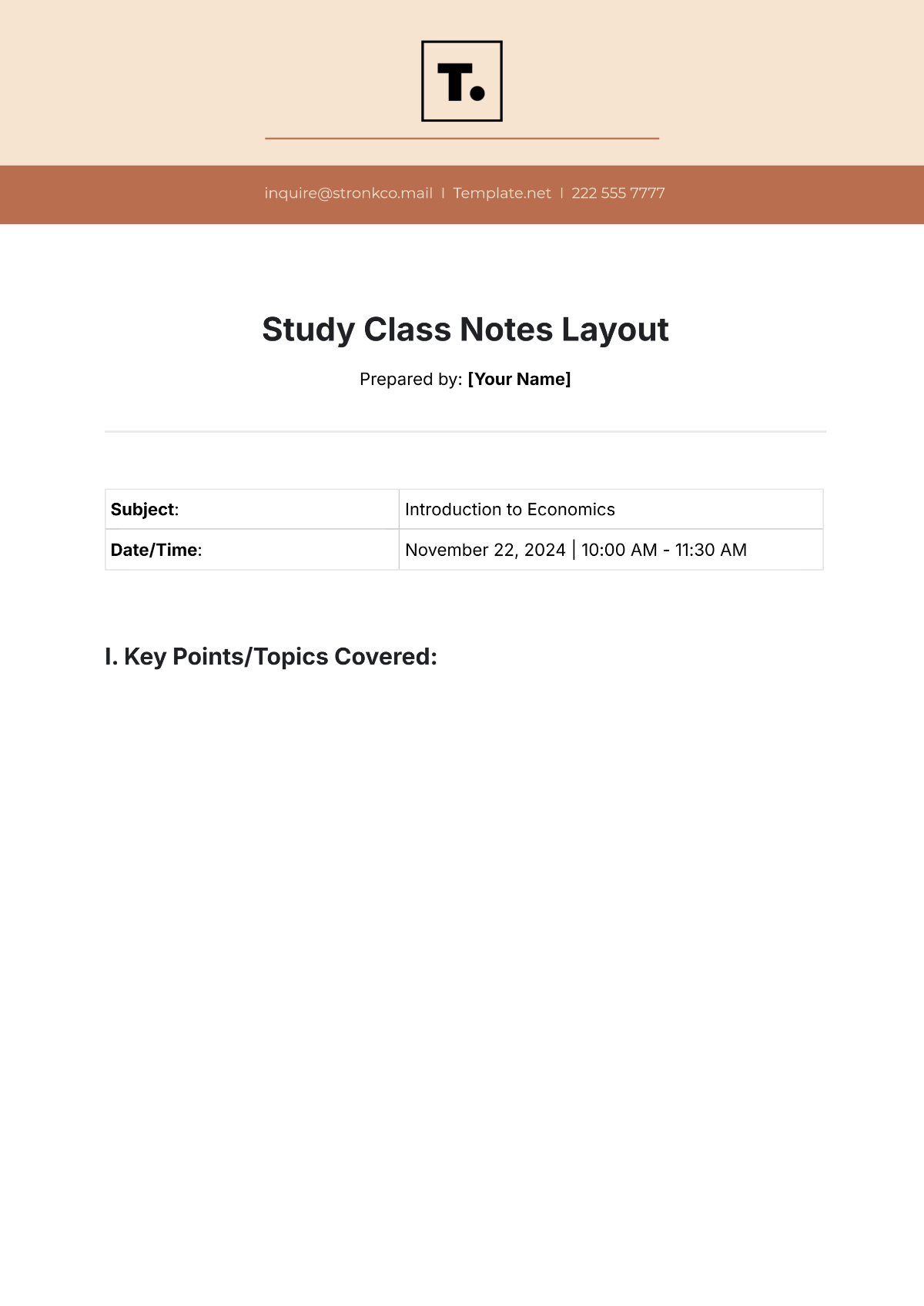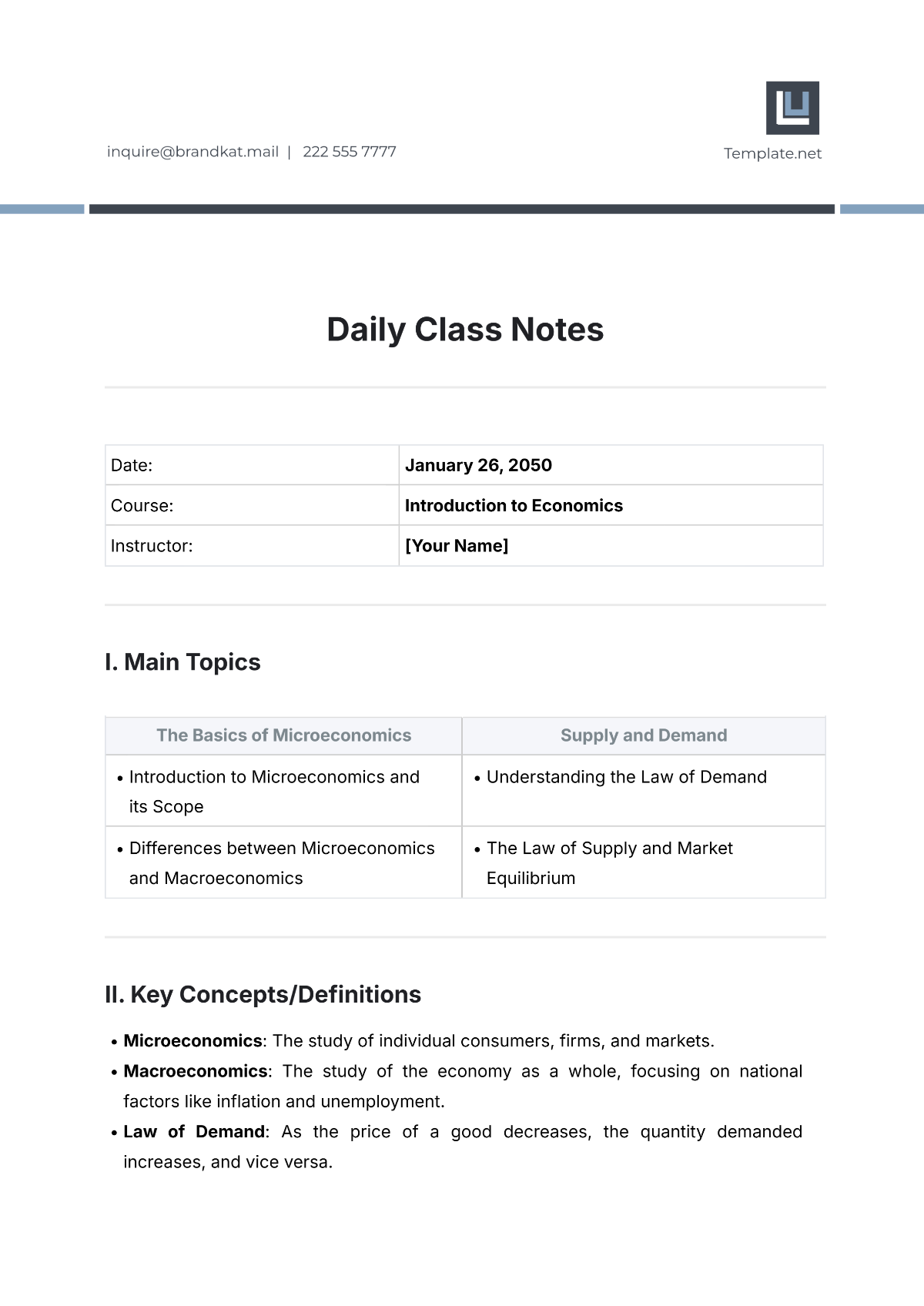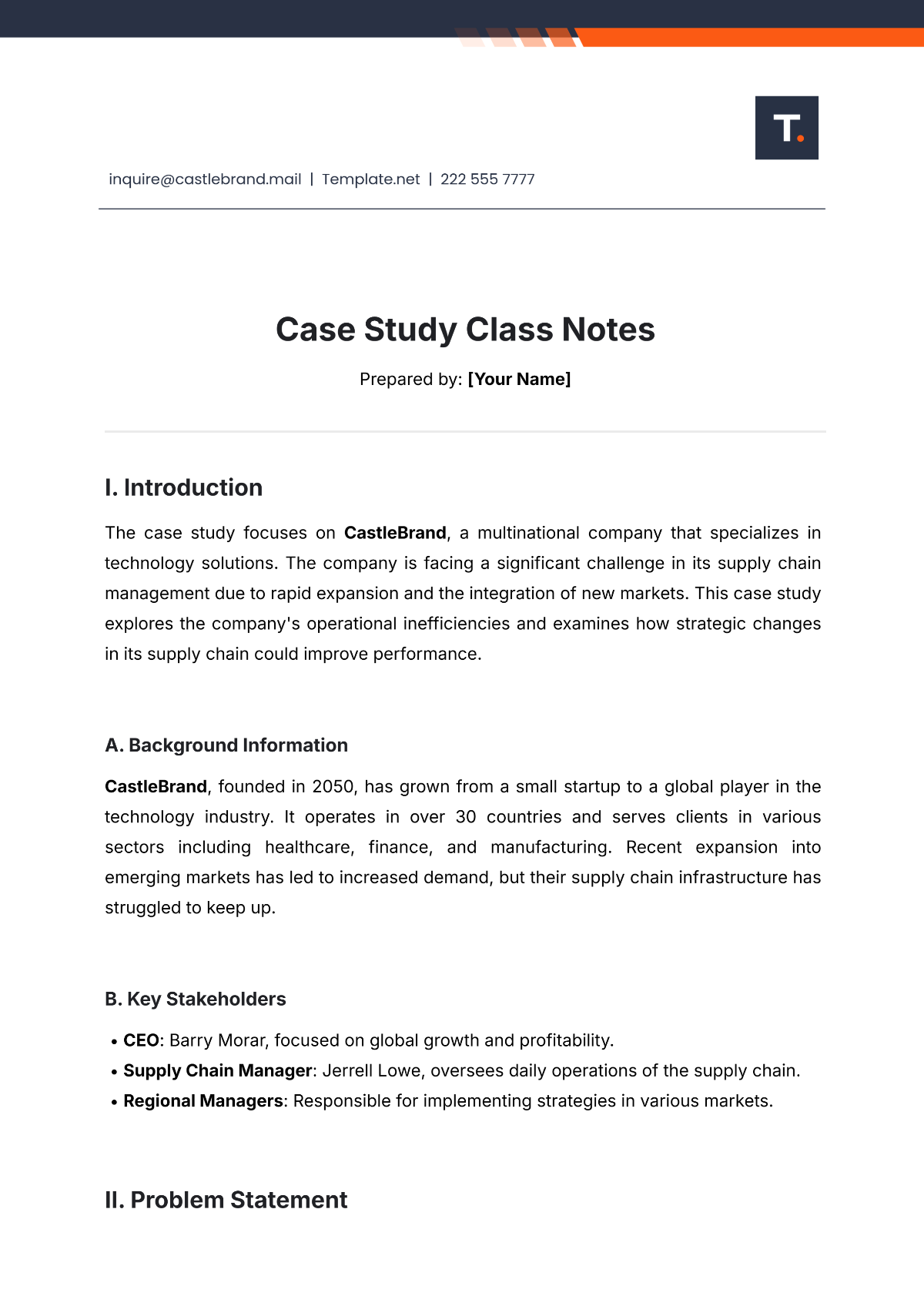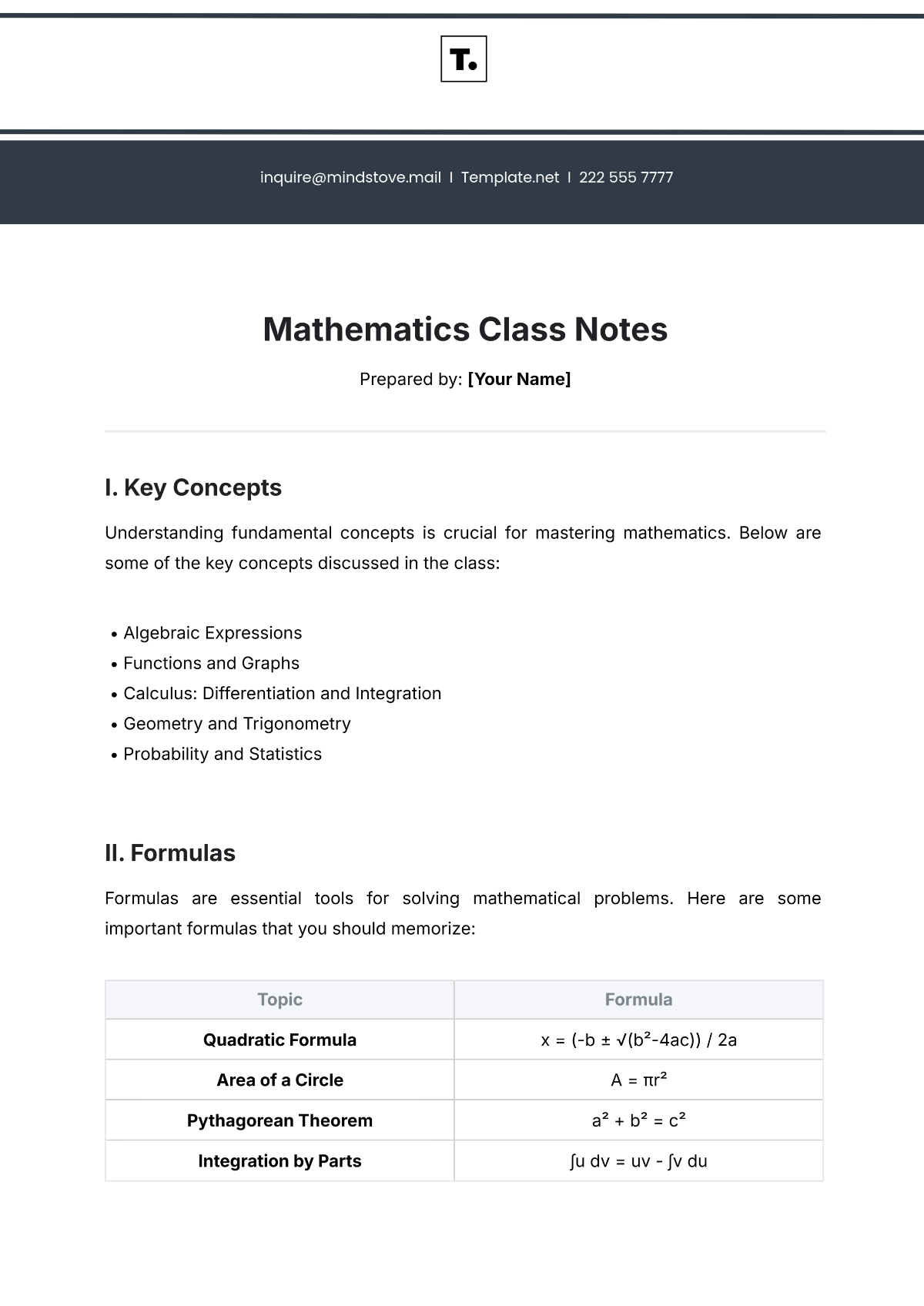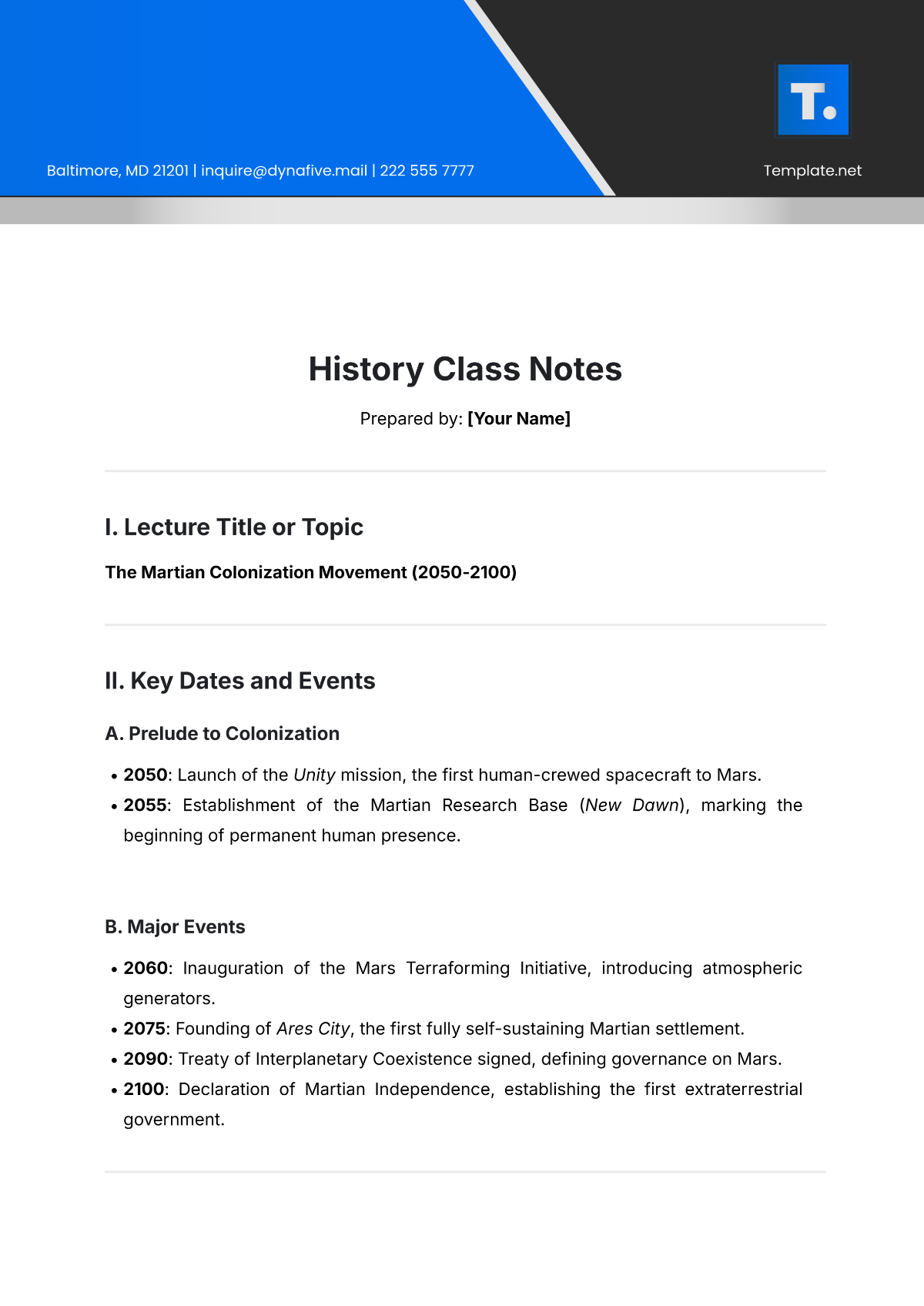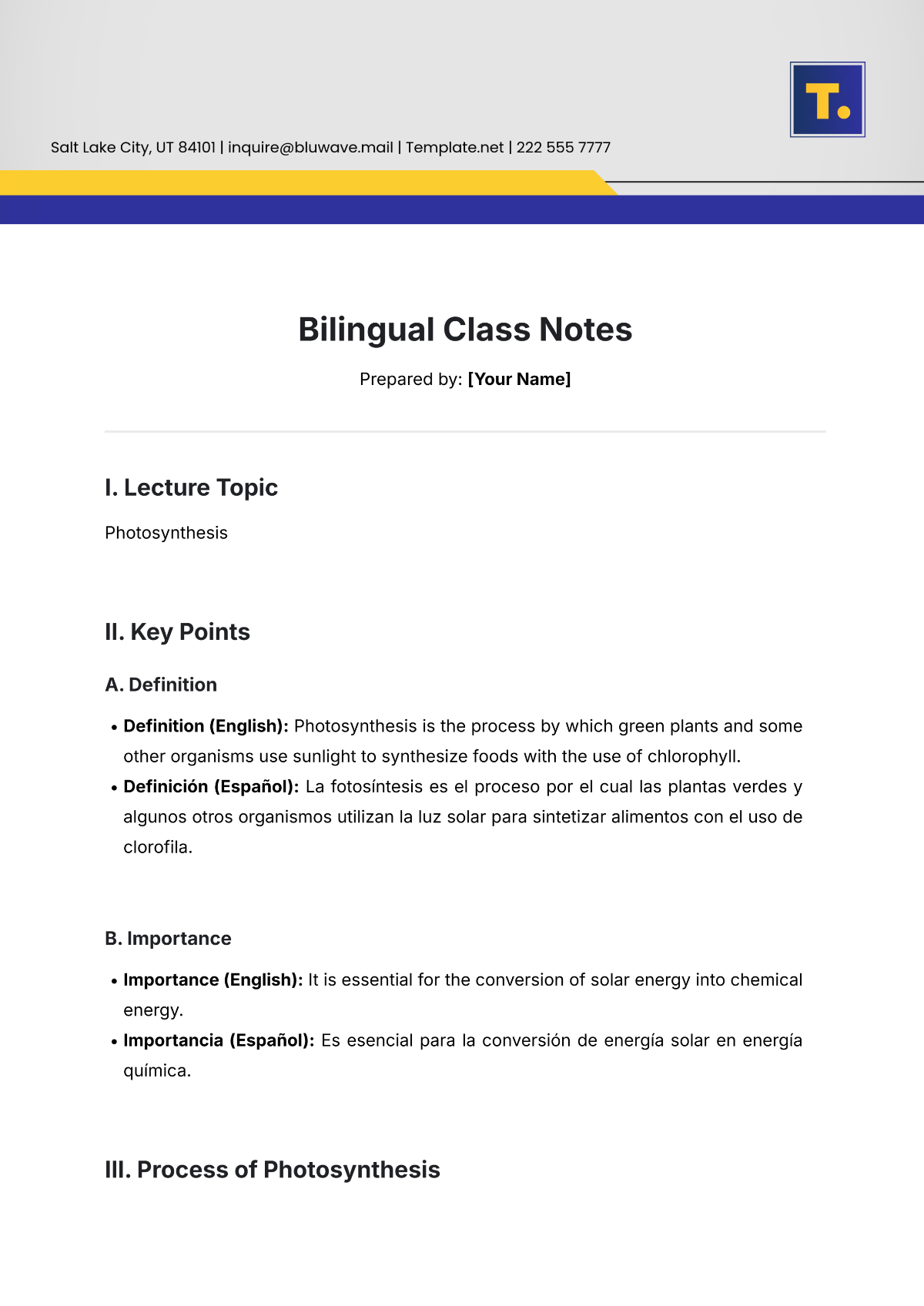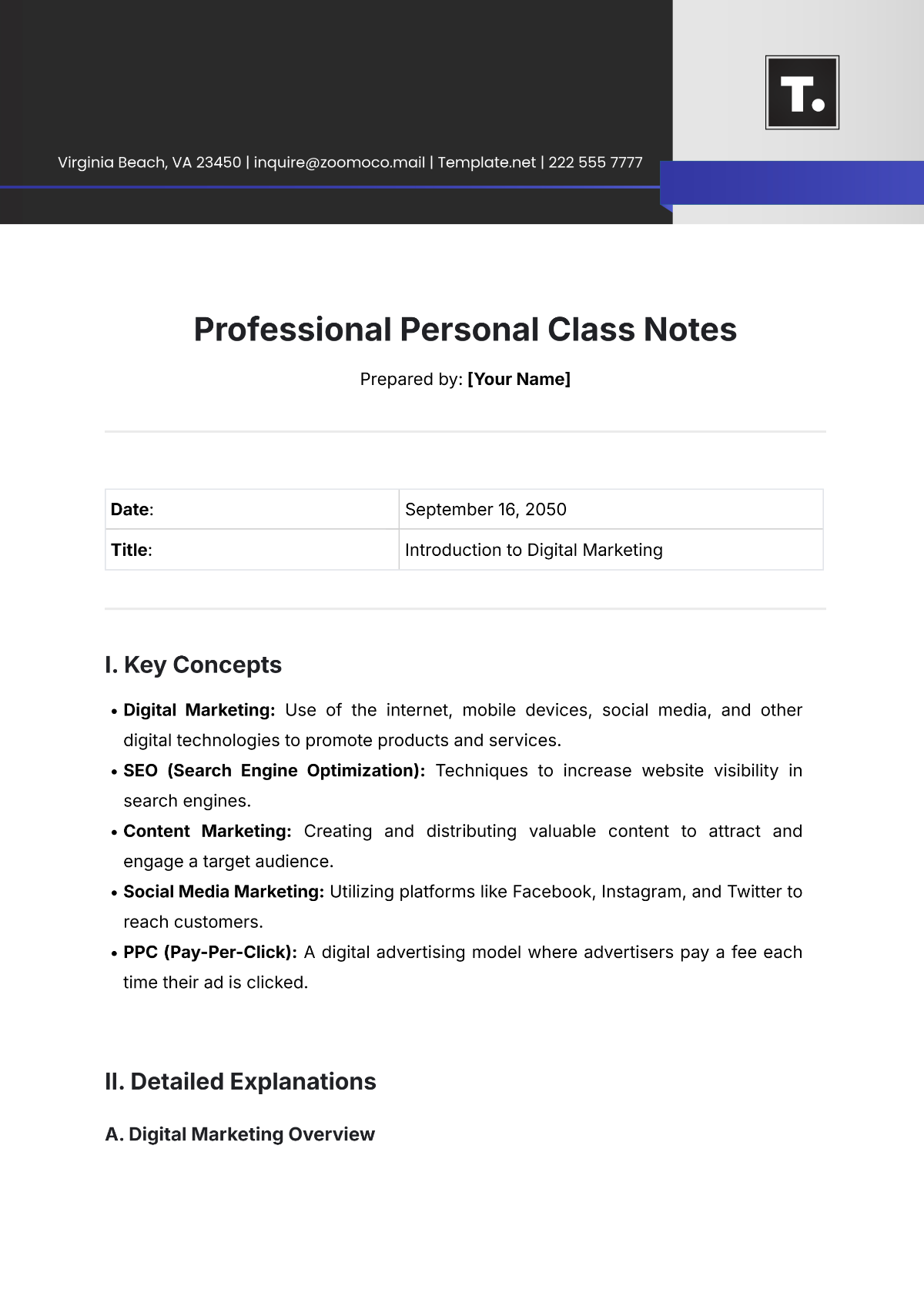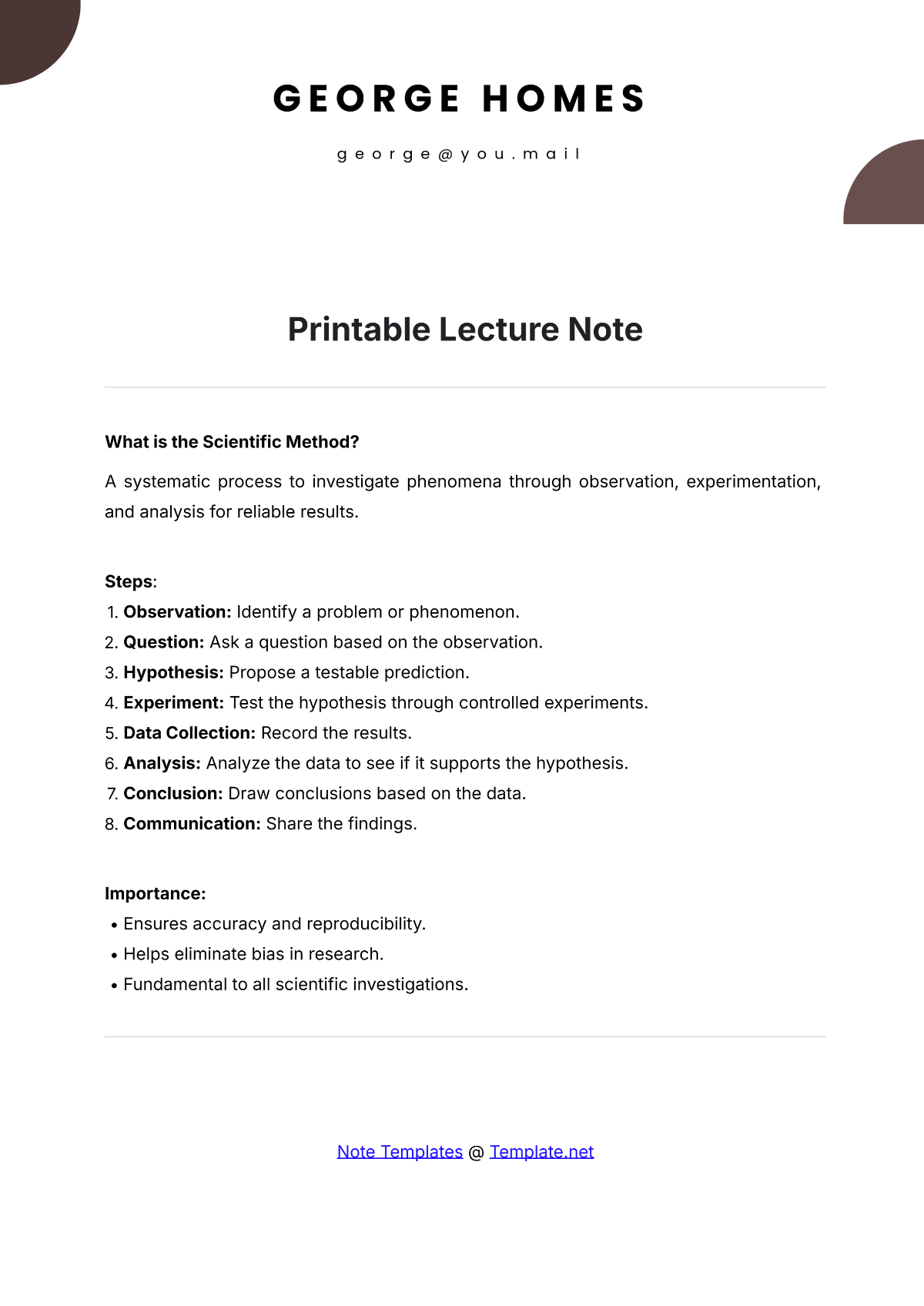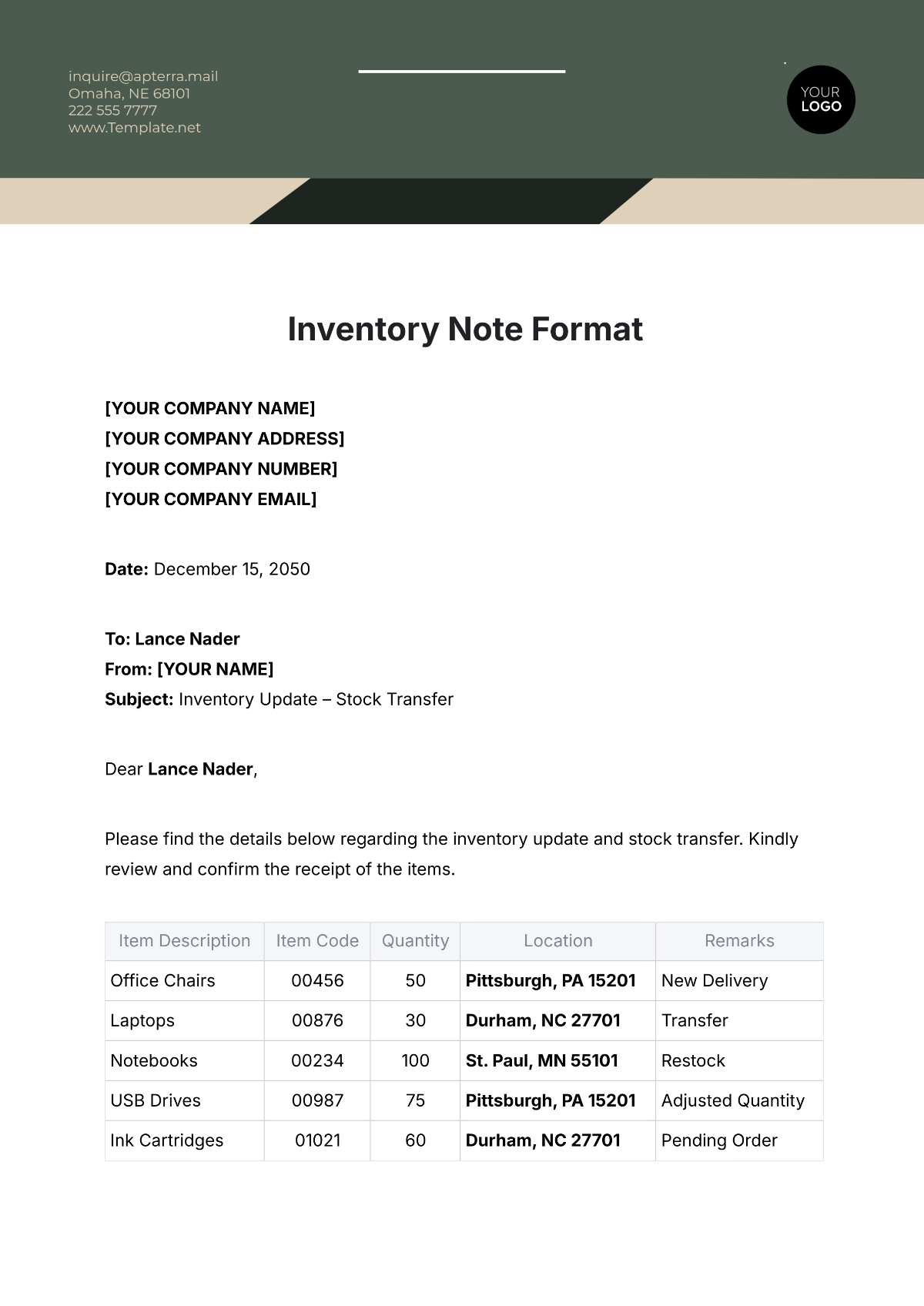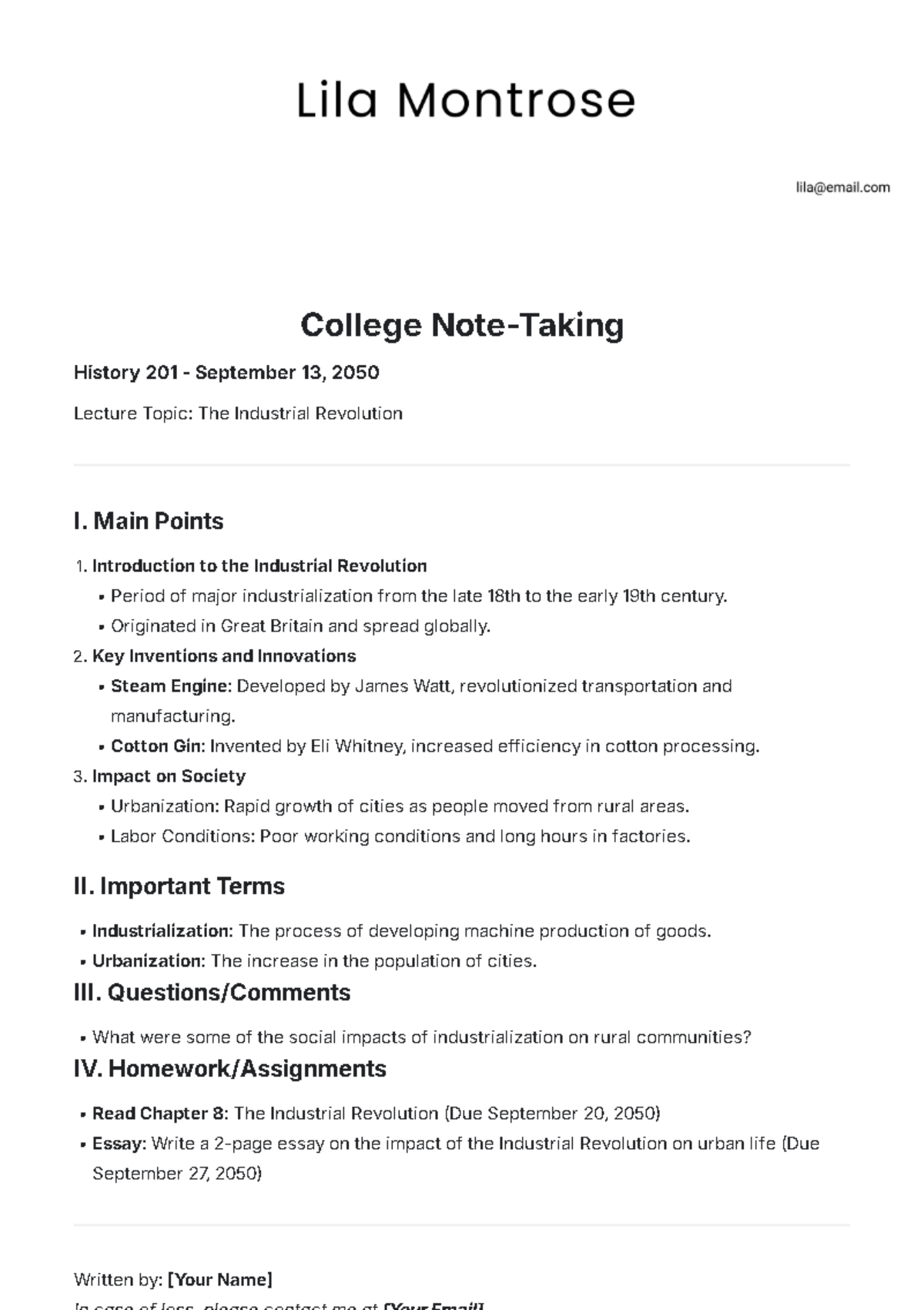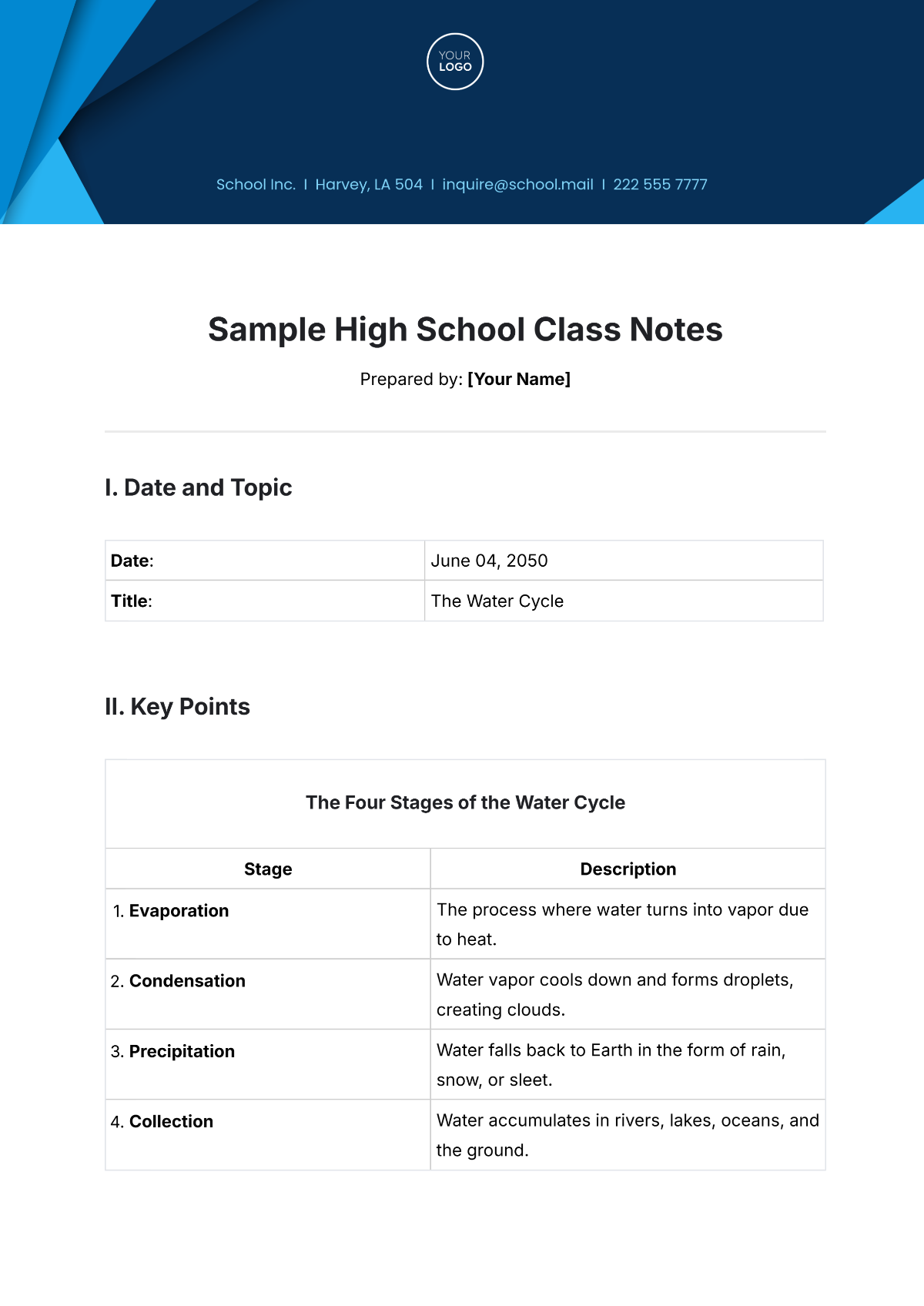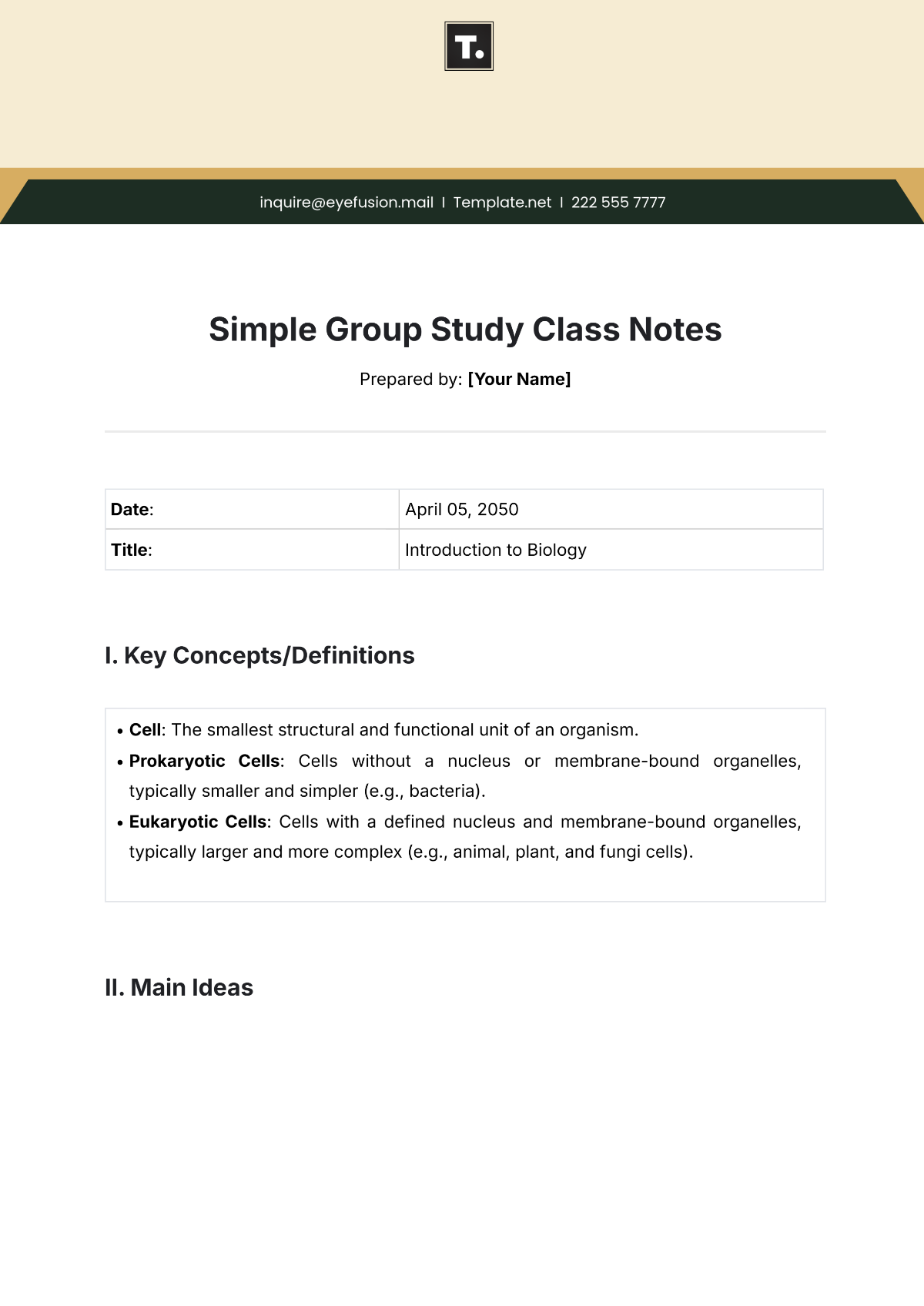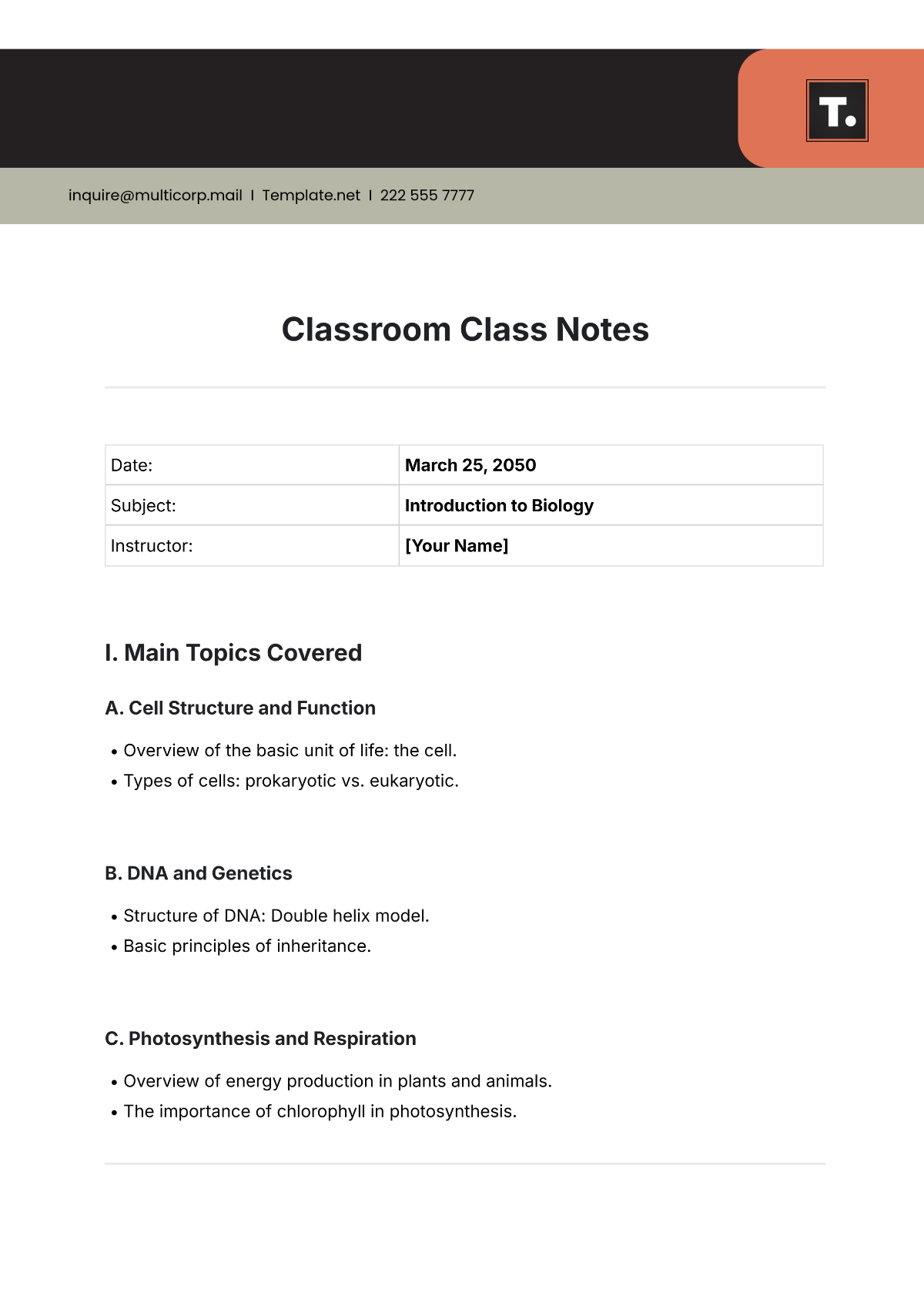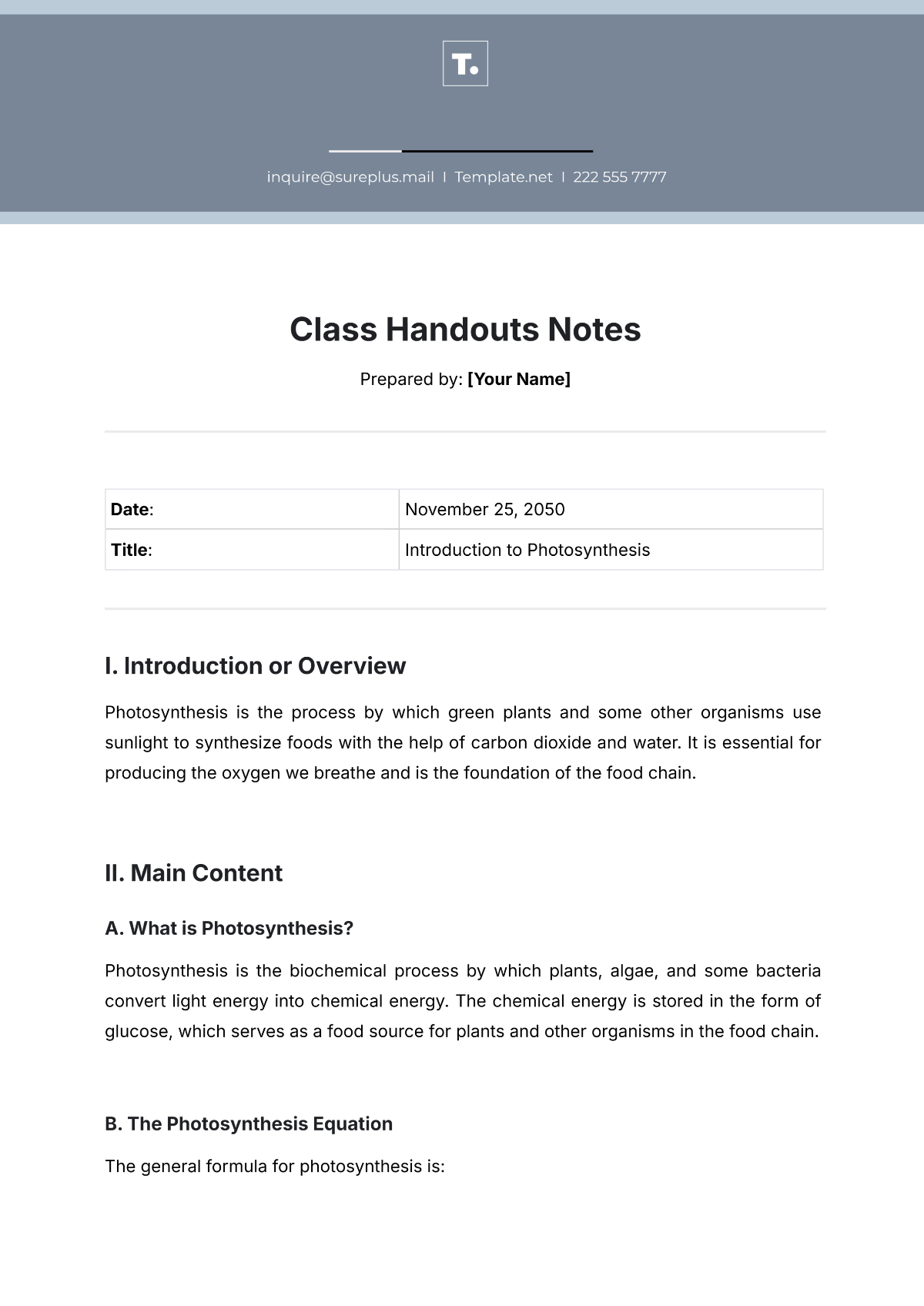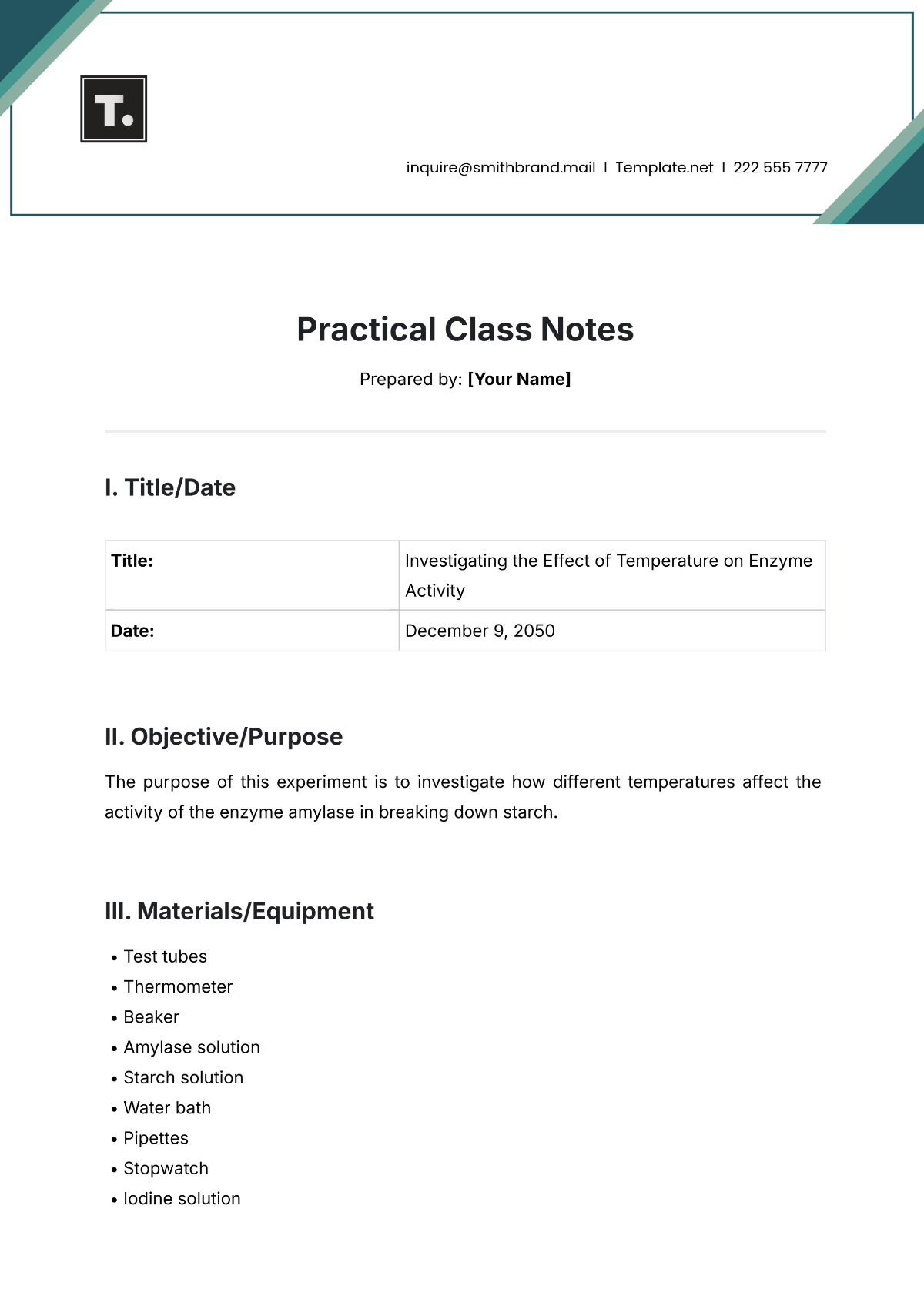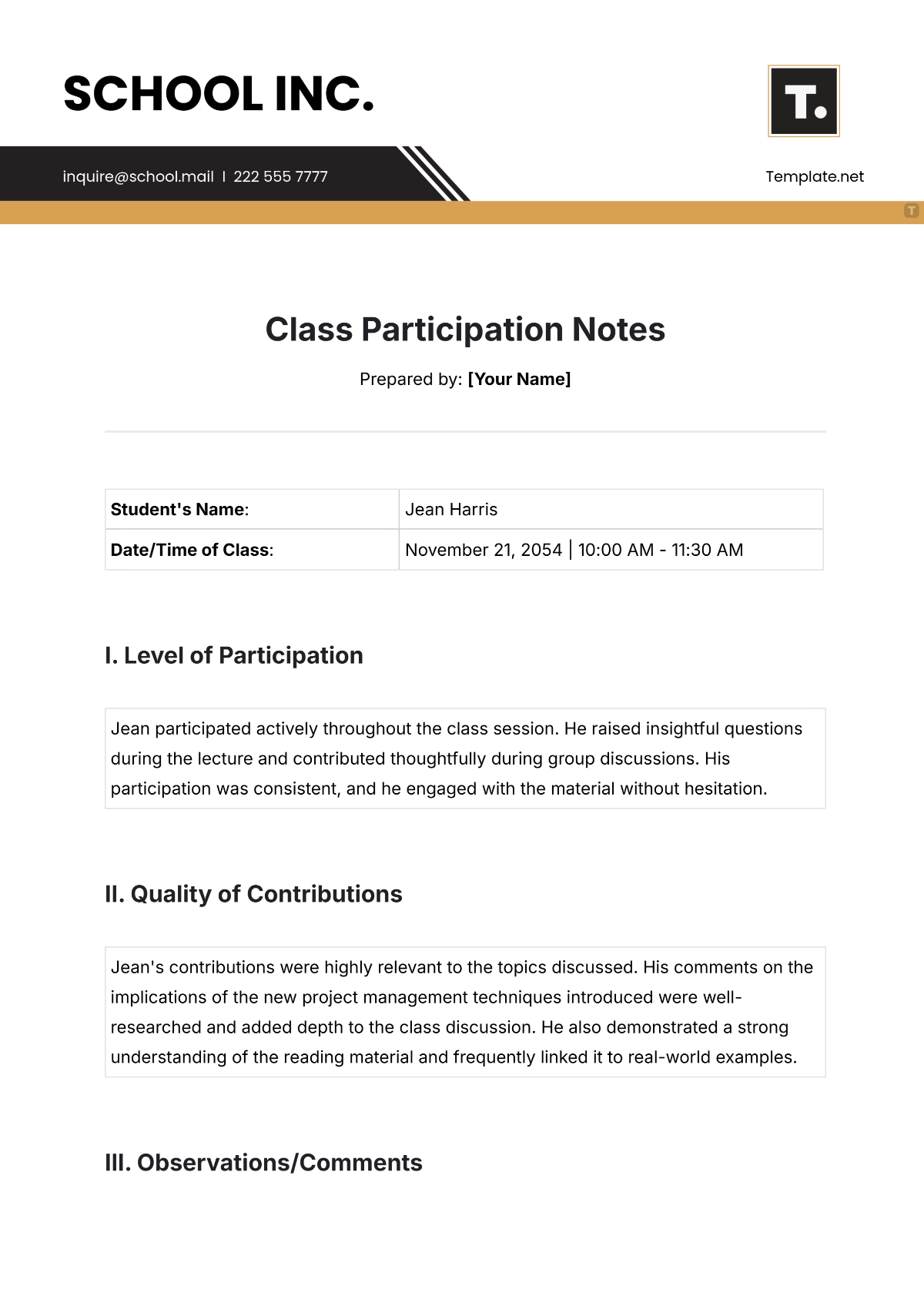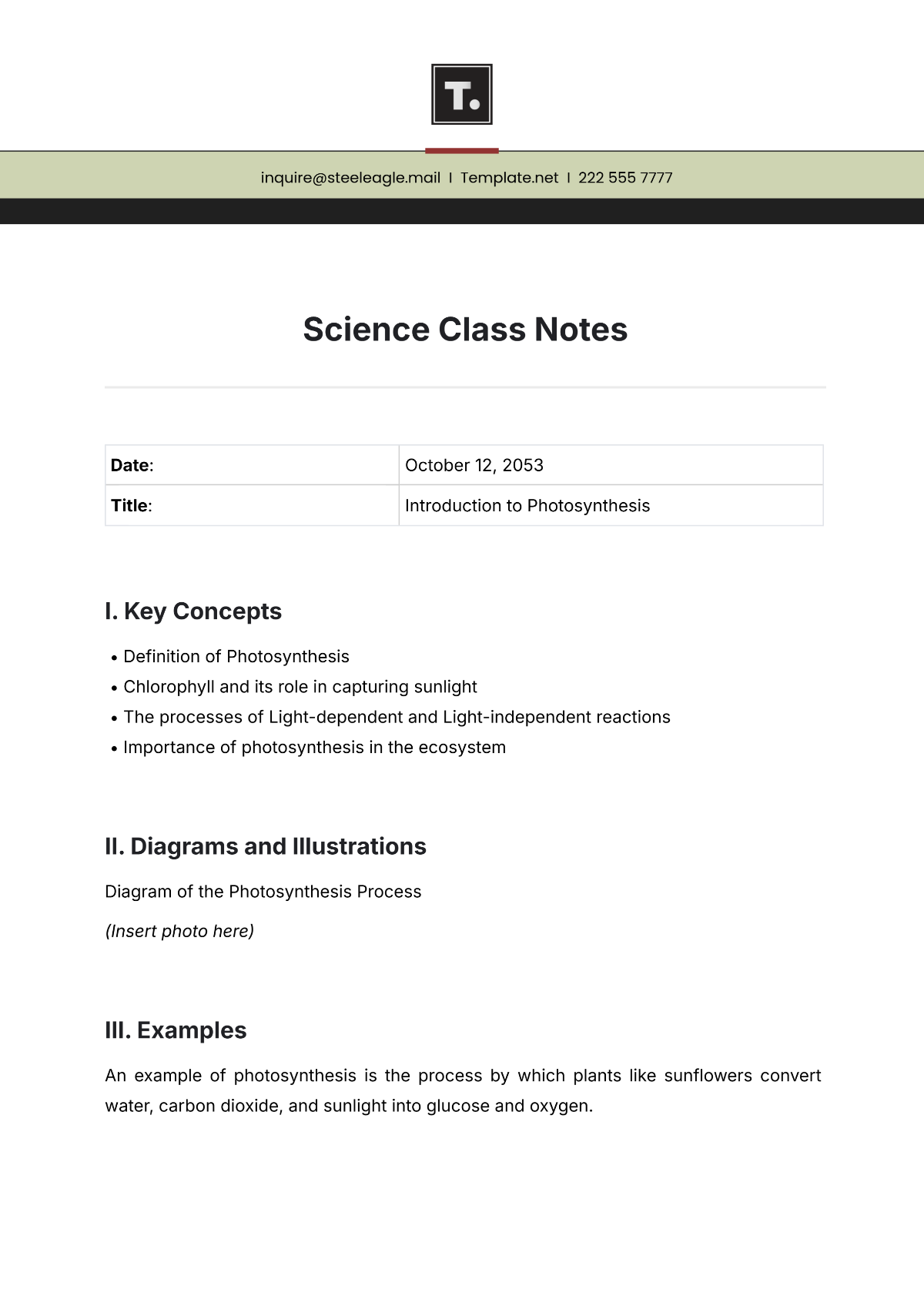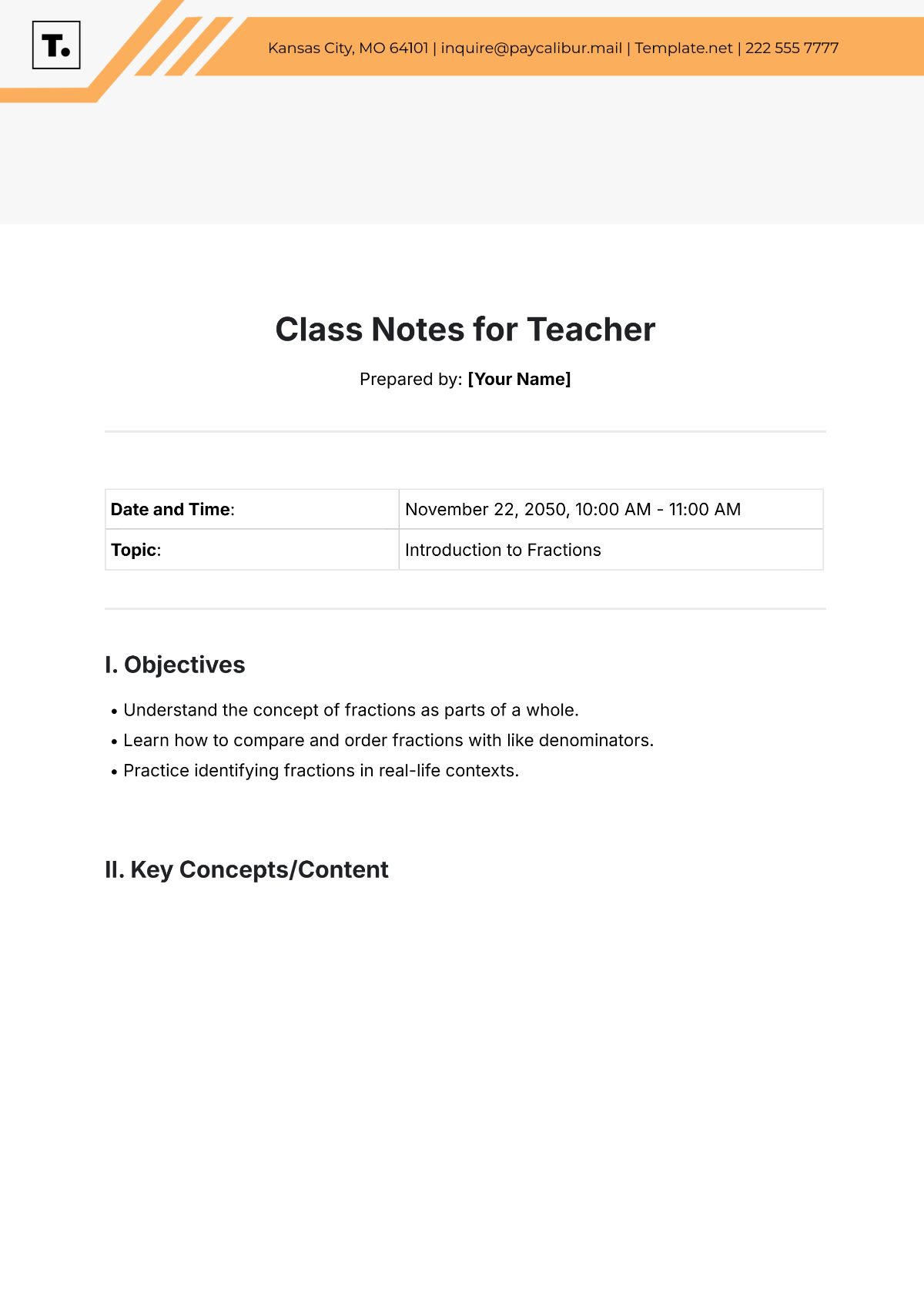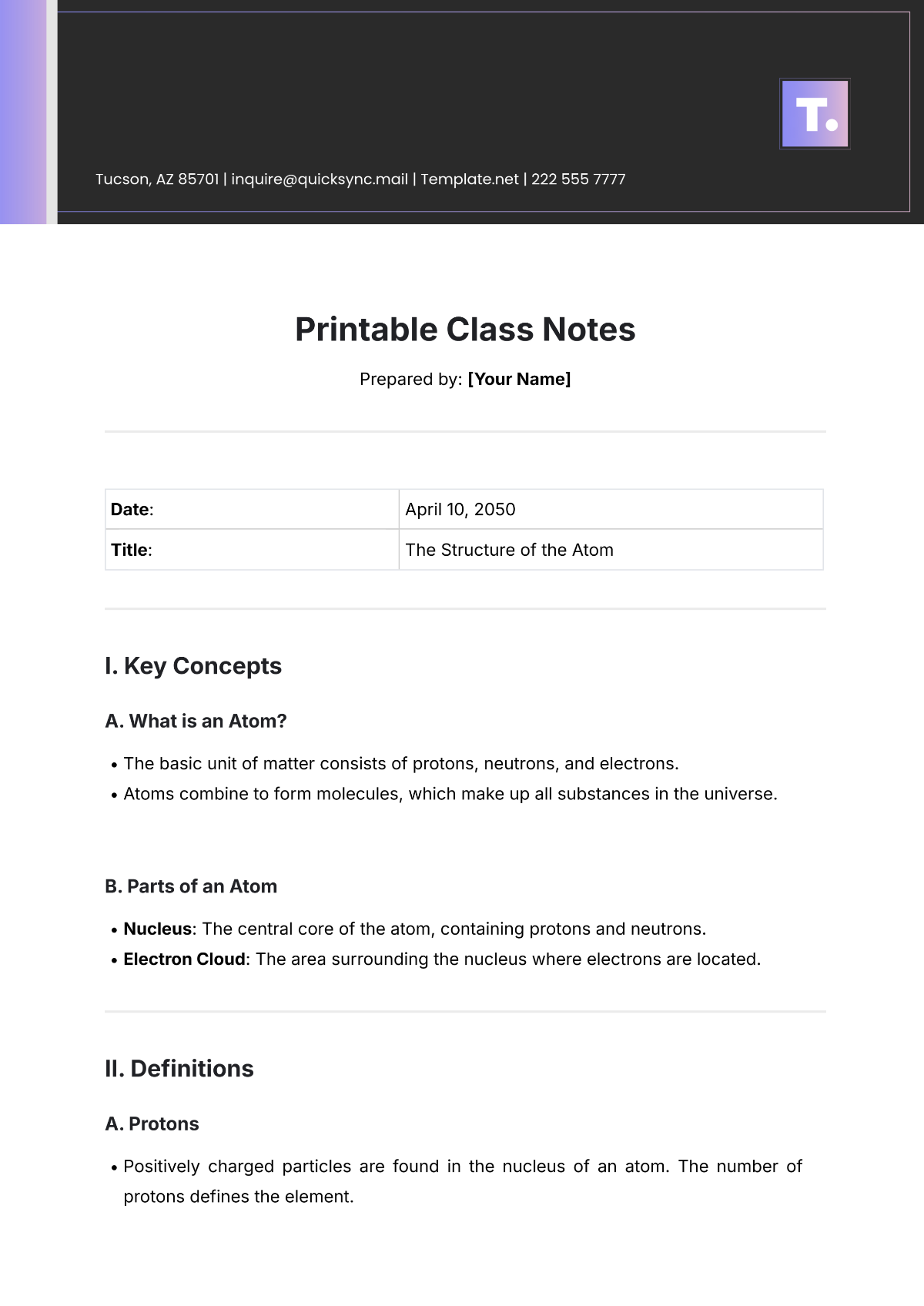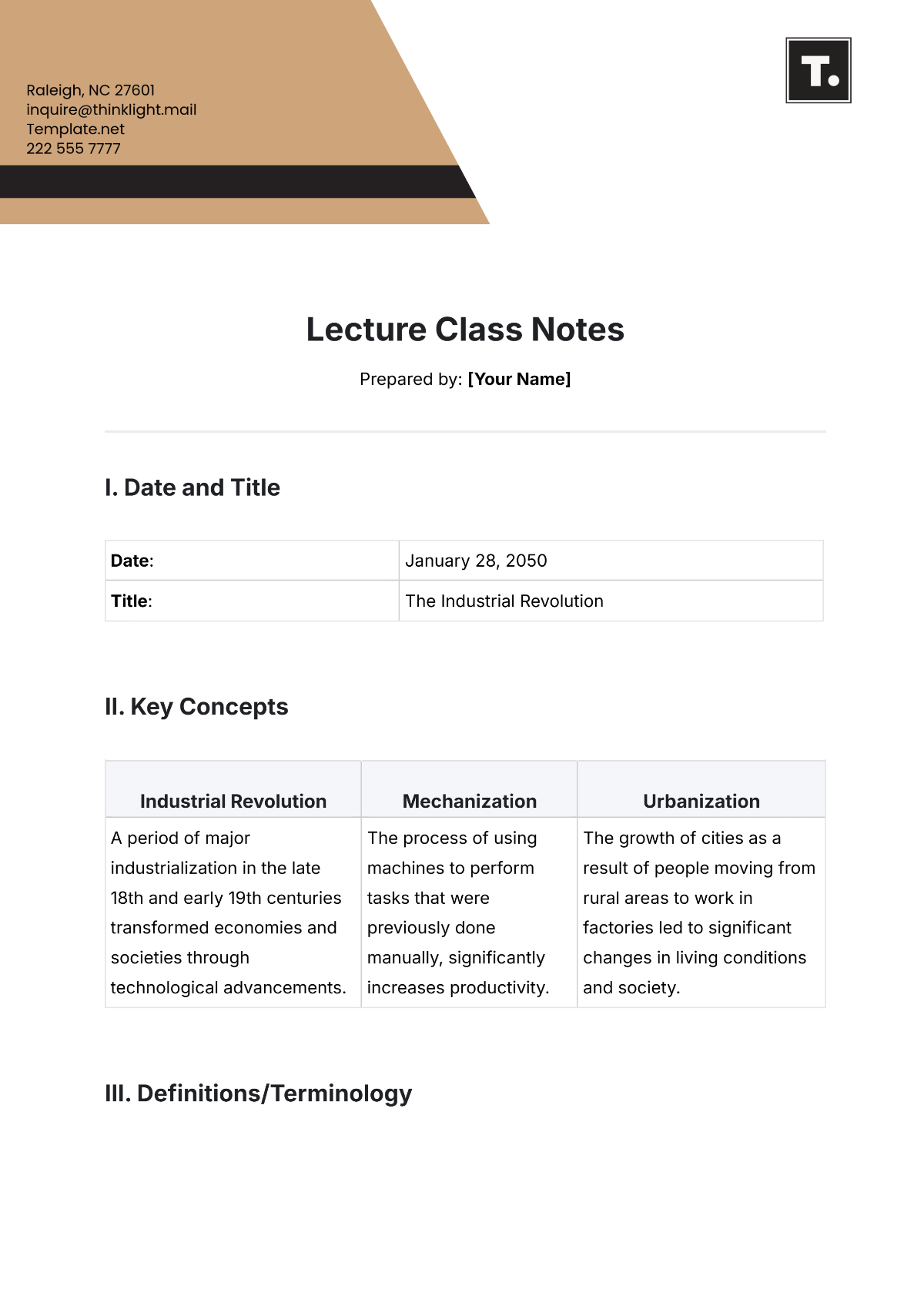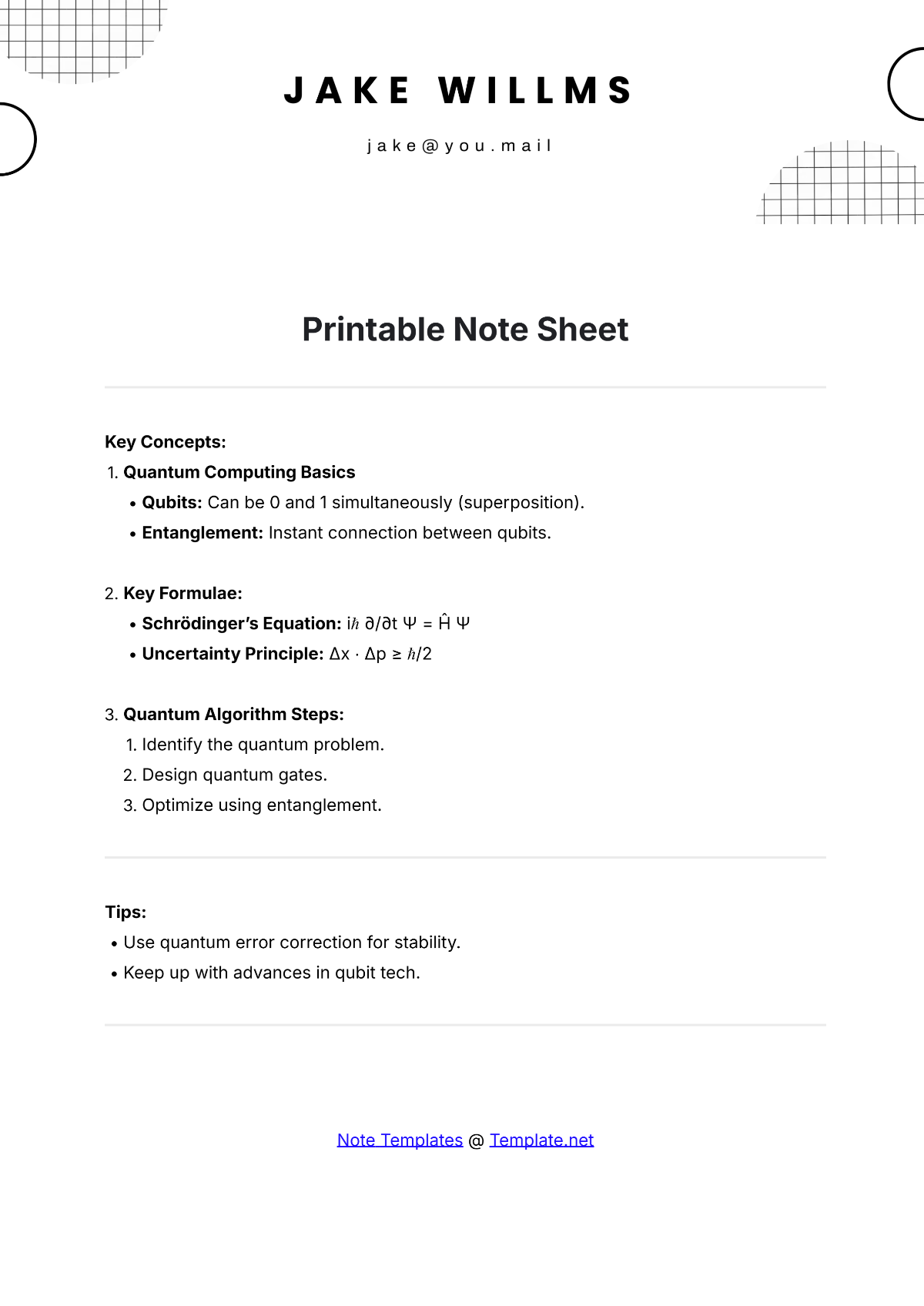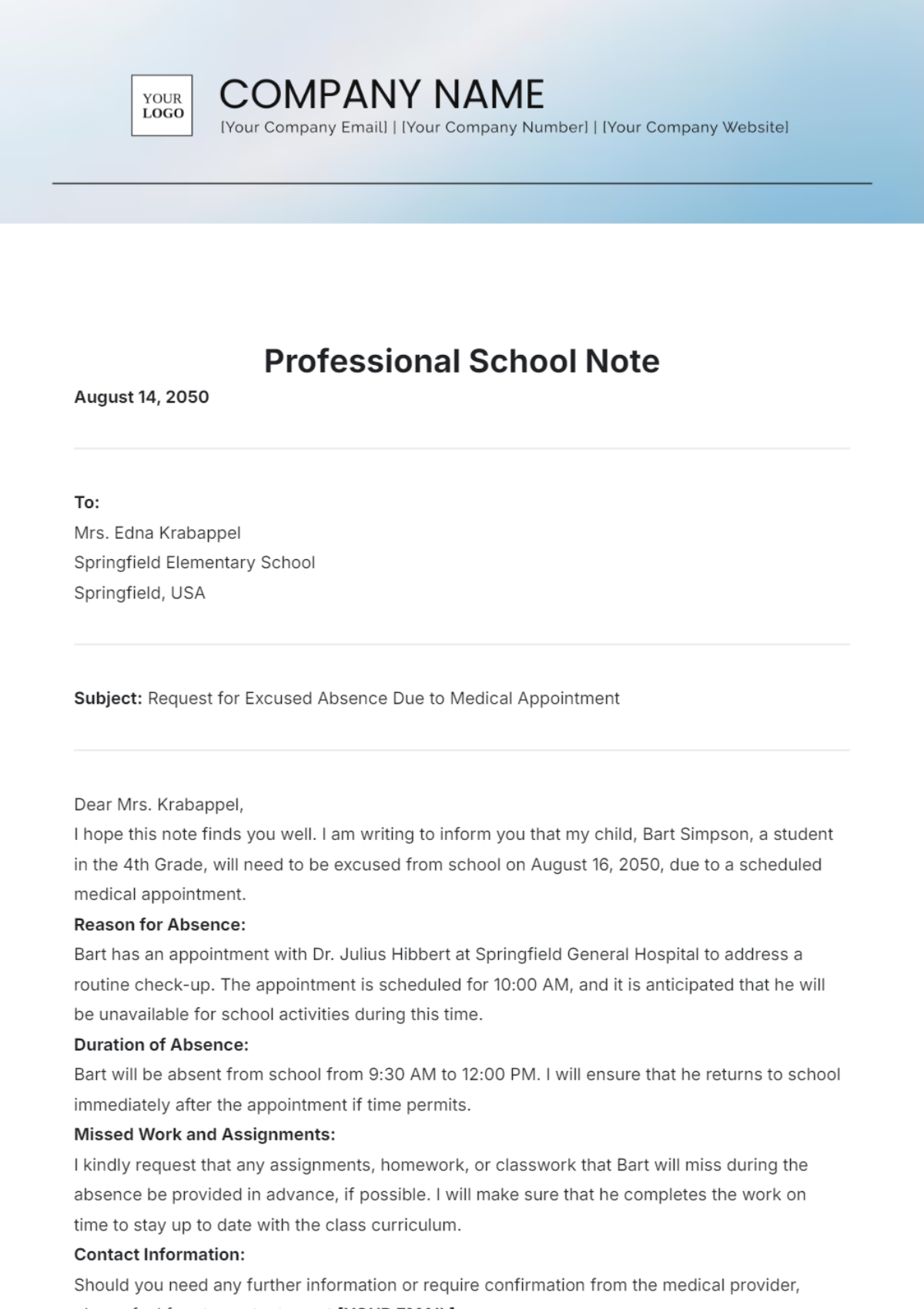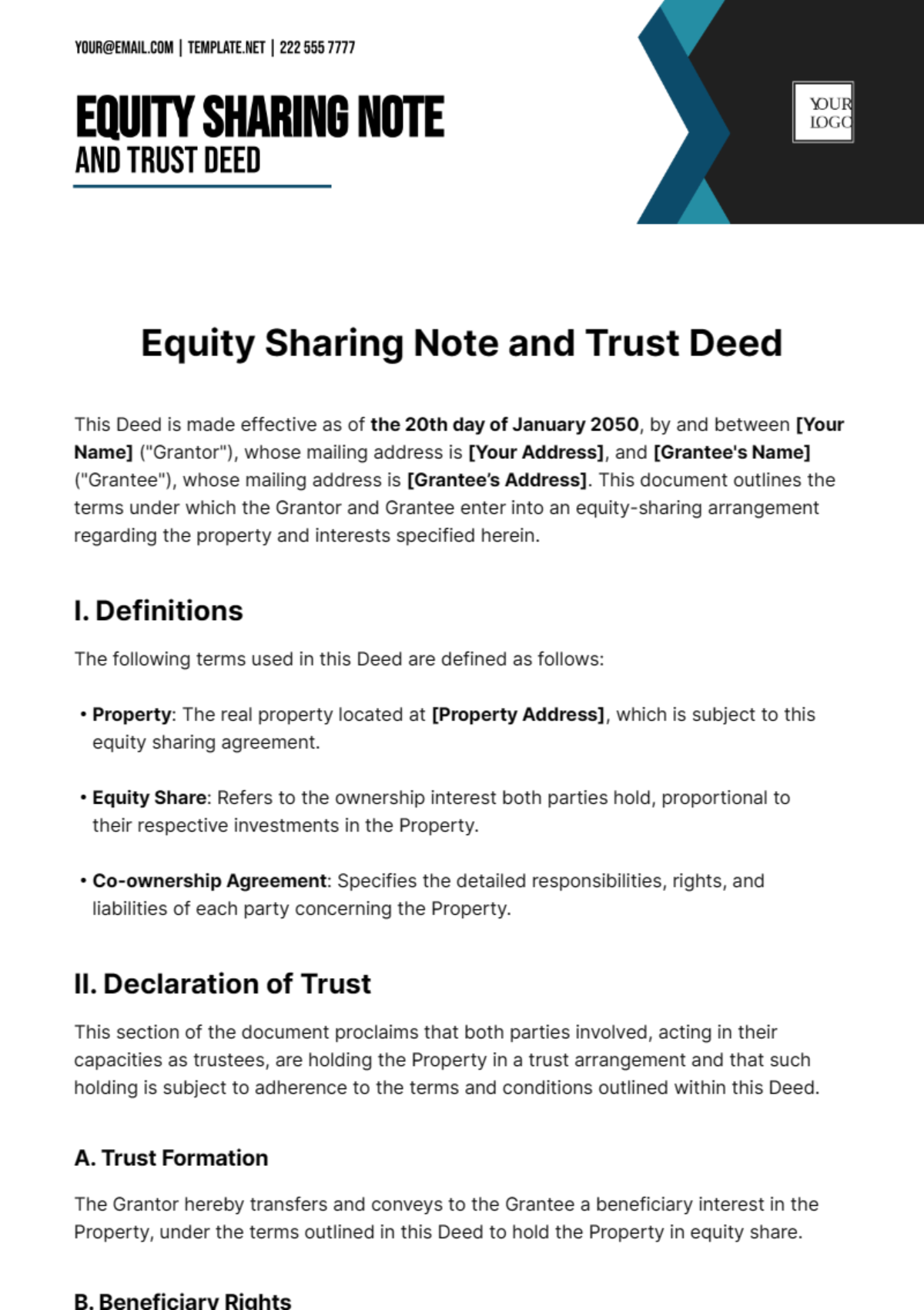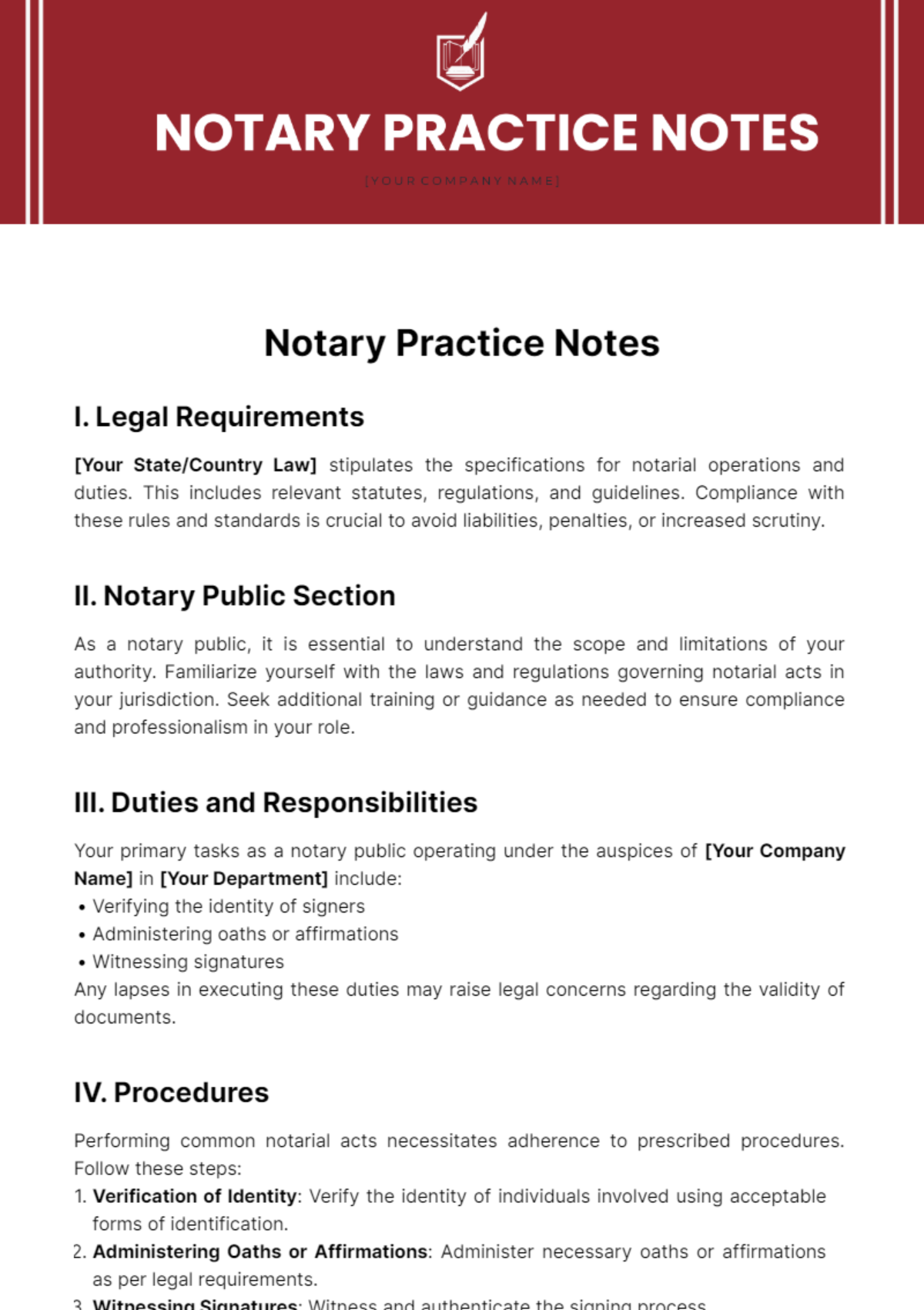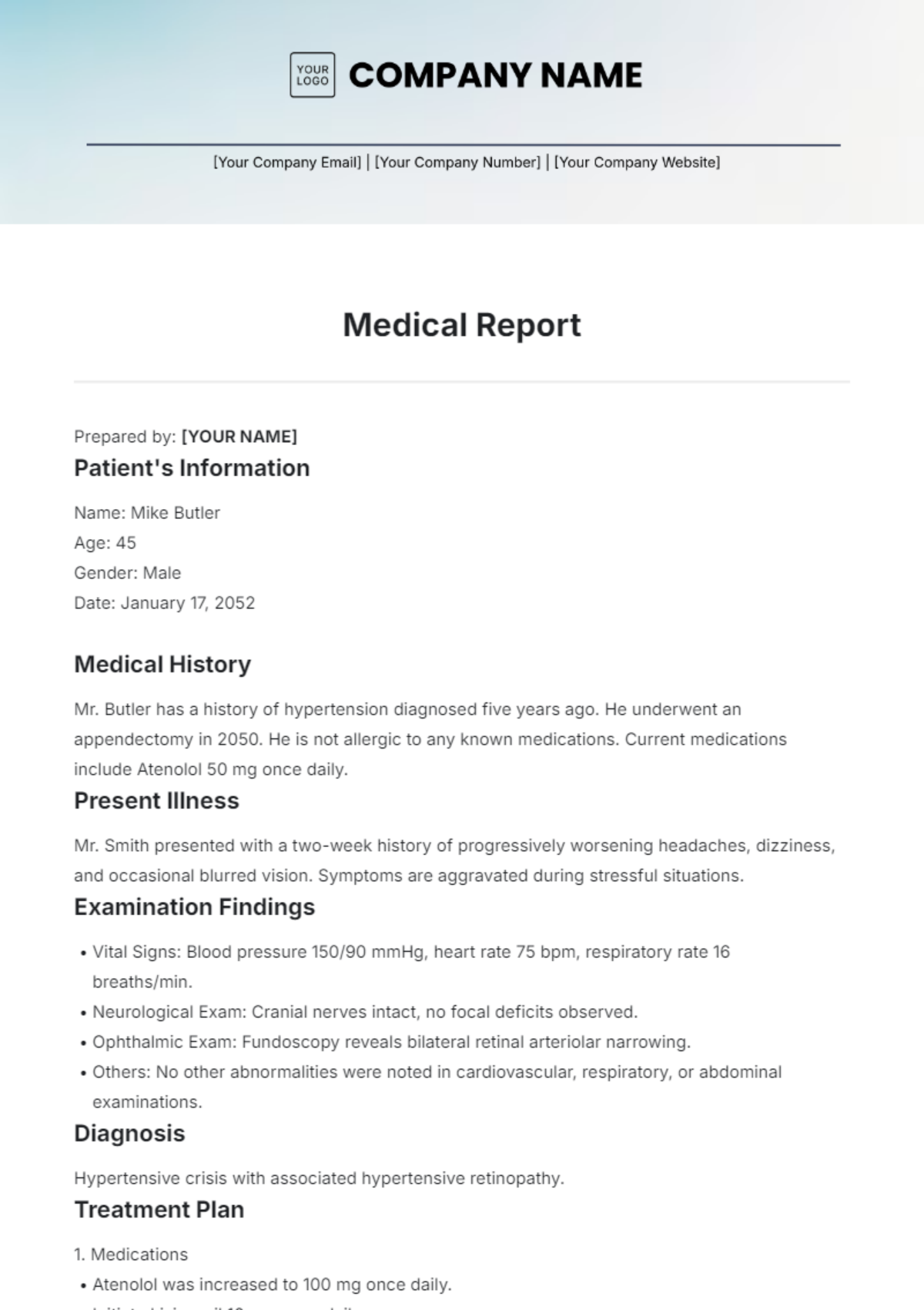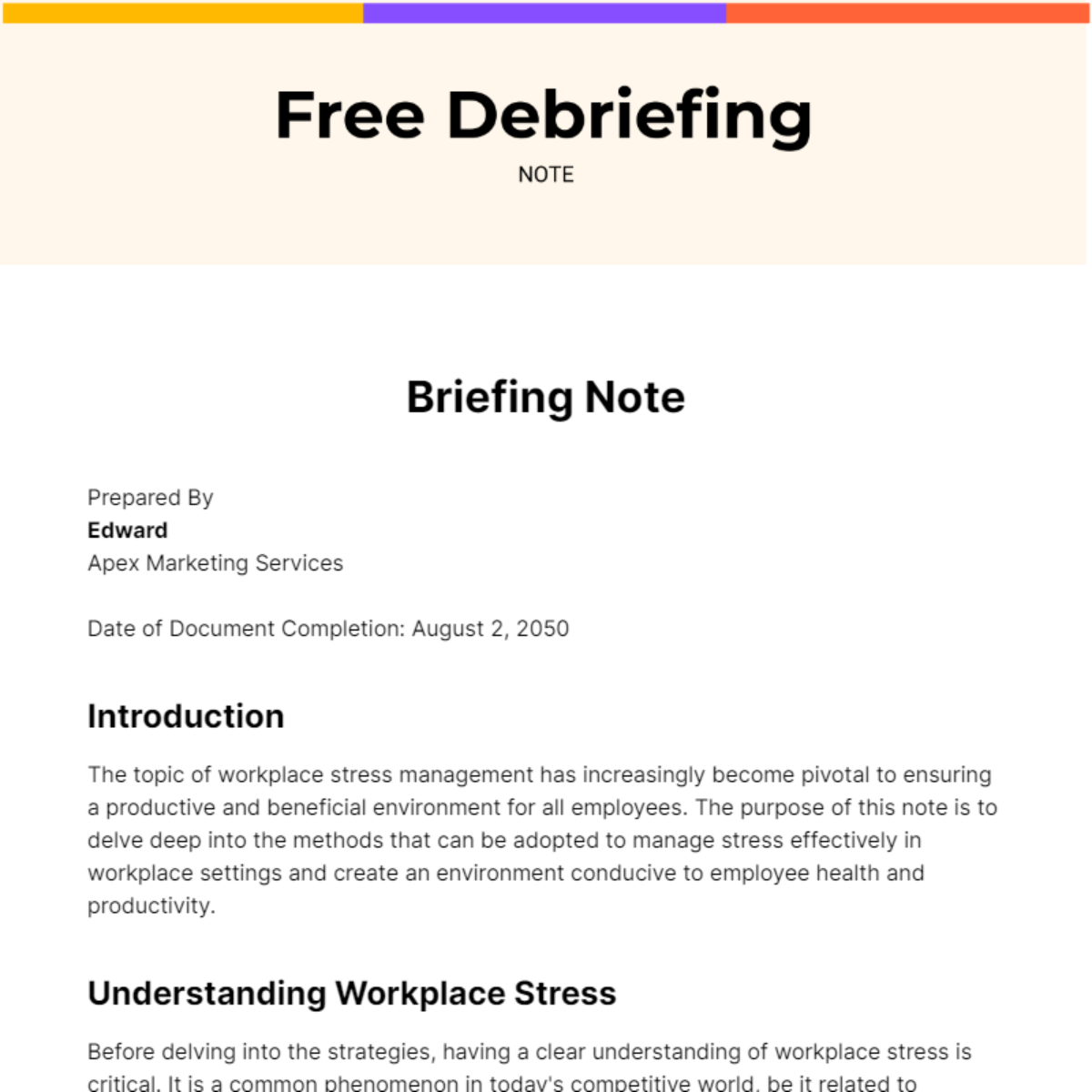History Class Notes
Prepared by: [Your Name]
I. Lecture Title or Topic
The Martian Colonization Movement (2050-2100)
II. Key Dates and Events
A. Prelude to Colonization
2050: Launch of the Unity mission, the first human-crewed spacecraft to Mars.
2055: Establishment of the Martian Research Base (New Dawn), marking the beginning of permanent human presence.
B. Major Events
2060: Inauguration of the Mars Terraforming Initiative, introducing atmospheric generators.
2075: Founding of Ares City, the first fully self-sustaining Martian settlement.
2090: Treaty of Interplanetary Coexistence signed, defining governance on Mars.
2100: Declaration of Martian Independence, establishing the first extraterrestrial government.
III. Important Figures
A. Martian Leaders
Dr. Elara Singh: Chief architect of the Terraforming Initiative.
Governor Isaac Chen: First elected leader of Ares City.
B. Earth Contributors
Professor Hiro Tanaka: Developed the advanced propulsion systems used in interplanetary travel.
President Sofia García: Championed funding for the Unity mission on Earth.
IV. Themes and Concepts
A. Causes of Colonization
Overpopulation on Earth: The need to expand human habitats to alleviate Earth's resource strain.
Technological Advancements: Breakthroughs in propulsion, robotics, and terraforming made colonization feasible.
B. Ideals of Colonization
Human Survival: Ensuring the species' continuity beyond Earth.
Innovation and Exploration: Pioneering new frontiers to advance humanity.
V. Definitions and Terms
Terraforming: The process of modifying a planet's atmosphere and environment to make it habitable.
Astrobiology: The study of life’s potential existence beyond Earth.
Martian Accord: A set of laws governing interplanetary interactions and settlements.
VI. Chronology or Timelines
2050-2055: Initial exploration and establishment of research bases.
2060-2070: Terraforming and construction of permanent habitats.
2075-2090: Development of cities and interplanetary diplomacy.
2095-2100: Push for independence and establishment of governance.
VII. Class Discussions
A. Key Questions
What ethical considerations should guide Martian colonization?
Could Mars serve as a template for colonizing other planets?
B. Notable Insights
The debate highlighted concerns about preserving Martian ecosystems, with many favoring ethical guidelines for terraforming.
Students discussed the potential for cultural divergence between Earth and Mars settlers.
VIII. References or Sources
"Red Frontier: The Ethics of Space Colonization" by Dr. Samuel Lee
"Terraforming Mars: A Scientific Blueprint" by Dr. Elara Singh
Class lecture slides provided by Professor Luna Morales.

